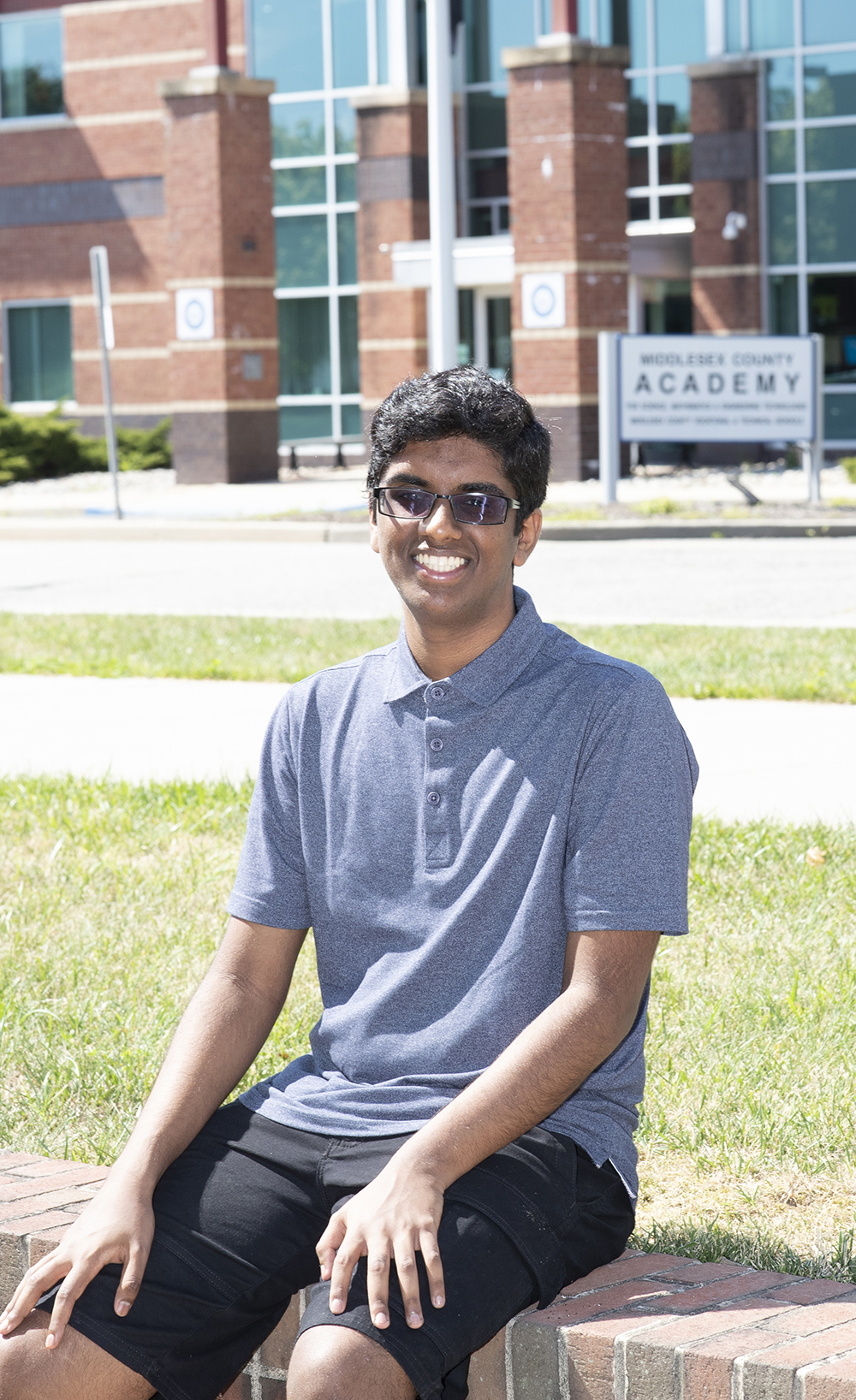Avinash Kumar of Edison was just angling for a better grade on his Advanced Placement calculus exam when he took a class at Middlesex County College (MCC) while still in high school.
“My motivation was to prepare myself for the AP Calculus exam,” he said. “But my interest quickly shifted when I discovered I could take additional classes and go on for an associate degree, and then complete my bachelor’s degree in two years instead of four.”
Kumar graduated from the Middlesex County Academy for Science, Mathematics and Engineering Technologies in June and plans to graduate from MCC in August. He was named a 2020 National Merit Scholarship winner.
He will then attend NJIT on a full scholarship as part of the accelerated BS/MS program at NJIT’s Albert Dorman Honors College. He is planning a career in information technology.
“MCC served as a bridge between high school and NJIT,” he said. “The class sizes were small and the professors were supportive.”
Kumar joined a growing number of students who are taking advantage of MCC while still in high school.
“We’ve seen extensive growth over the past three years,” says Kimberlee Hooper, director of K-12 Partnerships at Middlesex County College. Indeed. The number of high school students taking MCC classes has gone from just under 1,800 in 2017-18 to over 3,100 in 2019-2020 – a jump of almost 60%.
Hooper feels there are two major factors in this growth.
First, school districts are organizing and promoting options for their students better, making sure they understand they have numerous post-high school choices. For example, some students would be best served by earning a certificate in a short amount of time, and then going into the workforce. For others a two-year degree that leads to a job is most appropriate, and for others, a two-year degree and then transferring to a four-year school is the right path.
“That’s where we come in because of our flexibility and low-cost,” Hooper said.
And that’s the second reason: cost. High school students can take a 3-or 4-credit class for $125, including tuition and fees.
“Parents love that they can save literally thousands of dollars by having their kids take classes that will transfer to a four-year institution,” she said. “But there’s other advantages. It allows students to get used to the college experience, the amount of work, and what’s expected of them. It allows you to build up your academic profile and it helps solidify your career goals. You may think you are interested in one field but after taking a class or two, decide that it’s not for you. It’s much better to find that out before you are too far along.”
Hooper said another factor in the growth was outreach to charter and non-public schools in the area. MCC went from serving 22 schools in 2016 to 37 today.
“In the past, many of the parents were focused on four-year schools, but we’ve been reaching out to explain why we’re a viable option,” she said. “It’s becoming a great resource for their students. They especially like hearing about MCC’s transfer agreements.”
East Brunswick High School now offers a dual degree program with MCC, and three districts – Middlesex Borough, South Plainfield and Colonia – are developing them. Just like Kumar, students can actually earn a college degree while still in high school. Hooper said she expects several students will graduate from MCC in May of 2021 and East Brunswick High School the following month.
“Most lean toward our liberal arts majors, but we also have students interested in science and business,” she said. “Essentially, they can set their own pathway. Our hope is that we’re part of the process for these students, whether it’s one course, or 10 courses, or a degree.”

